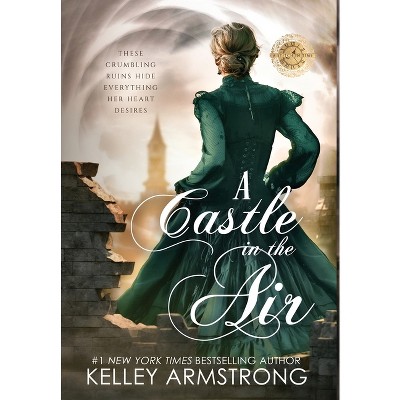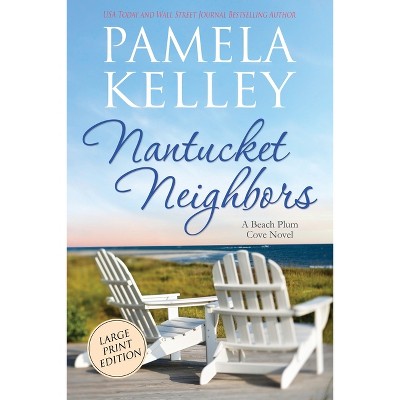Sponsored

The Other Special Relationship - (Contemporary Black History) by R Kelley & S Tuck (Hardcover)
In Stock
Sponsored
About this item
Highlights
- About the Author: Robin D. G. Kelley is Professor of American Studies and Ethnicity at the University of Southern California, USA.
- 255 Pages
- History, Europe
- Series Name: Contemporary Black History
Description
About the Book
"The close diplomatic, economic, and military ties that comprise the 'special relationship' between the United States and Great Britain have received significant attention from historians over the years. Less frequently noted are the countries' shared experiences of empire, white supremacy, racial inequality, and neoliberalism--and the attendant struggles for civil rights and political reform that have marked their recent history. This exceptional collection traces the contours of this other 'special relationship,' exploring its implications for our understanding of the development of an internationally interconnected civil rights movement. Here, scholars from a range of research fields contribute essays on a wide variety of themes, from solidarity protests to calypso culture to white supremacy"From the Back Cover
The close diplomatic, economic, and military ties that comprising the "special relationship" between the United States and Great Britain have received plenty of attention from historians over the years. Less frequently noted are the countries' shared experiences of empire, white supremacy, racial inequality, and neoliberalism - and the attendant struggles for civil rights and political reform that have marked their recent history. This state-of-the-field collection traces the contours of this other "special relationship," exploring its implications for our understanding of the development of an internationally interconnected civil rights movement. Here, scholars from a range of research fields contribute essays on a wide variety of themes, from solidarity protests to calypso culture to white supremacy.
Review Quotes
REVIEWER: Gerald Horne, University of Houston-Downtown
This manuscript comprises a compendium of articles detailing the relations between the U.S. and U.K. in the context of issues concerning racism, Jim Crow, immigration and the like. It mostly concerns the 20th century and heavily focuses on the 1950s and 1960s.
It is almost trite to say that collections tend to be uneven, perhaps a product of their being the product of different hands with varying strengths and weaknesses. The same can be said about this collection.
It *definitely* merits publication.
It could be published as is and, I am reasonably certain, would receive mostly positive reviews.
However, my own view is that the book would be strengthened if the Editors of this volume penned a stronger Introduction that could stand on its own as a contribution to the book's overriding themes.
For example, the Editors could provide a broader context that would strengthen the volume by e.g. pointing to the 'Anglo-philia' of Africans in North America stemming at least from June 1772 and Somerset's Case, which put London on the fast track to abolition as the republic lagged behind. As the historians like to say, it is no accident that more Africans fought alongside the redcoats against the victorious rebels by an order of magnitude than vice versa; this alliance continued during the 1812 war and during a time when Canada was a sanctuary for Africans fleeing the republic. It would be useful to trace how this trend morphed to the point whereby as Webb suggests Dixie thought London would be an ally in the mid-20th century.
Further, the Editors could place emphasis on the differences. There are the obvious ones: Claudia Jones expelled as a radical by the republic and finding a new home as a leader in the monarchy. What does that tell us about the conservatism of the U.S.? Or the relative openness of London? What of the difference between how a regime treats second class citizens (U.S. Negroes) vs. recent migrants (U.K.)? What of how U.S. Negroes were treated in London (often better than 'local' Africans) versus how Africans and 'West Indians' were treated in the republic (often better than U.S. Negroes)? What about local peculiarities in the U.K.? For example, 'accent' discrimination. (See reception of Otis Redding, for example, p. 249.
In that light, is acceptance of Stax more of a 'respectable' way to accept the U.S. than anything else, rather than as portrayed a positive embrace of U.S. Negroes? What of differences in treatment between those from colonial 'possessions' in London versus third-class citizens in Manhattan? What of presumed relatives and representatives of 'national liberation movements' (Caribbean and Africa in London) versus those who were not (Manhattan)?
Per Rosie Wild, why don't Editors riff on the difference the way 'Black' is defined in London vs. New York (or Cape Town, for that matter)? To that end, why was 'Black Power' in London seemingly more internationalist than its trans-oceanic counterpart?
Why was 'Black Power' in UK 'mostly populated by African Caribbeans' and not continental Africans? (p. 72) What happened to the 'revolutionary potential of soul music'? (p. 225) Was this goal realized? Why? Why not?
p. 259: Did pro-gay rights Goldwater actually 'set the subsequent standard for hard-right politics in America'? (Speaking of which, why 'America'? Why not the U.S.? Why accept this casual territorial arrogation?)
And what about London as a site for Diaspora, sharing notes and the like e.g. Robeson and Kenyatta sharing a flat during the 1930s? There are numerous examples like this.
As for music, since Street does not note it, why don't the Editors comment on the 'anomaly' of the 'British Invasion'? That is, the Beatles, Stones and the like as is widely known basically absorbing Black American music and making fortunes by selling it back to the U.S. encased in a 'white' form?
What about Sadie Alexander of Philadelphia to this day perhaps the best-trained intellectual among African-Americans (multiple degrees from Penn)? Her father, Aaron Mosell also a relative of Robeson was too a Penn grad and an attorney, who then became a lawyer in South Africa before pitching up in Cardiff where he was a leader there for years.
I assume St. Clair Drake wrote about him though Gaines does not mention it. The Editors should then.
Again, this is a worthy volume that could be published as is, quite easily. However, the Editors should seek to make a synthetic contribution of their own to strengthen this entire work.
About the Author
Robin D. G. Kelley is Professor of American Studies and Ethnicity at the University of Southern California, USA. He is the author of the prize-winning books Thelonious Monk: The Life and Times of an American Original (Free Press, 2009)and Freedom Dreams: The Black Radical Imagination (Beacon Press, 2002). Stephen Tuck is University Lecturer in American History and a tutor and fellow at Pembroke College, Oxford University, UK. He is the author of the prize-winning books We Ain't What We Ought To Be: The Black Freedom Struggle from Emancipation to Obama (Harvard University Press, 2010) and Beyond Atlanta: The Struggle for Racial Equality in Georgia, 1940-1980 (University of Georgia Press, 2003).
Shipping details
Return details
Frequently bought together

Discover more options











